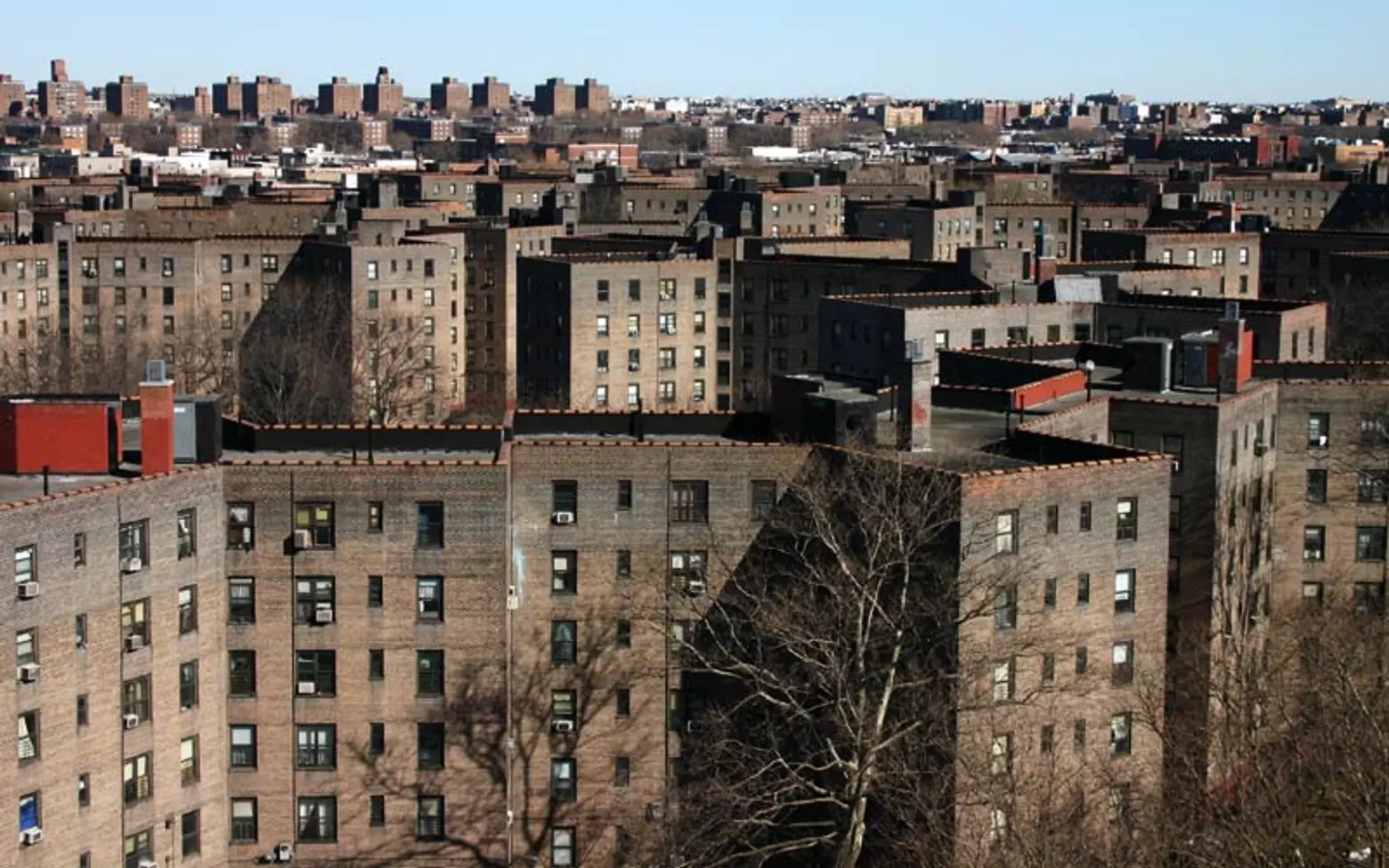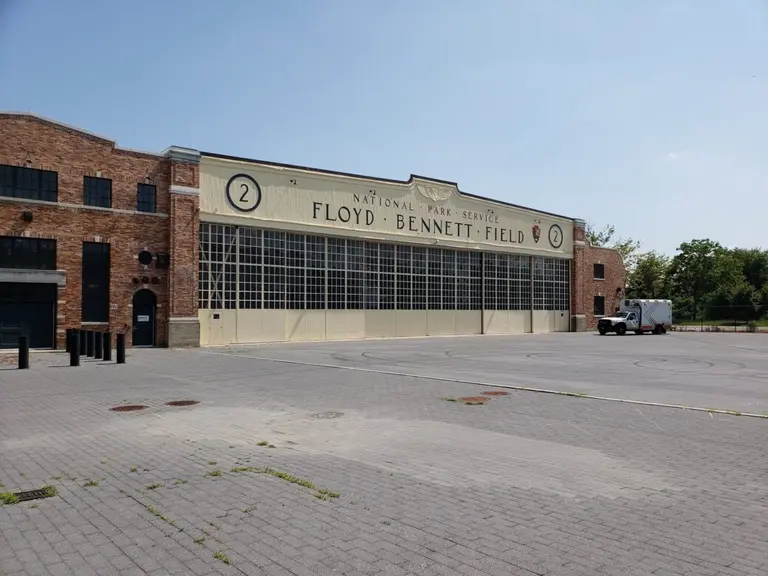NYCHA says it needs nearly $80 billion for repairs

Image via WikiCommons
New York City’s public housing agency needs more than $78 billion to make much-needed repairs to its dilapidated housing stock, according to a new 20-year assessment released Wednesday. The estimation for the apartment repairs is a whopping 73 percent higher than NYCHA’s last assessment of $45.2 billion calculated in 2017. According to the agency, nearly 40 percent of NYCHA apartments require more than $500,000 in work per unit.
The agency estimates that roughly 54 percent, or $42.1 billion of the 20-year estimated cost, will be put towards the immediate replacement of items, while 77 percent, or $60.3 billion, will be put towards items that require replacement within the next five years.
Conducted every five years, the Physical Needs Assessment allows NYCHA to evaluate the needs of the city’s public housing system on a broad scale. According to the PNA, roughly two-thirds of the staggering $30 billion increase since the 2017 assessment is due to skyrocketing market prices, with one-third including issues not included in the previous assessment, like lead paint and asbestos abatement and the “deterioration of assets.”
According to the assessment, upgrading apartment interiors, heat and hot water systems, plumbing, and building facades and windows would cost $58 billion, or 74 percent of NYCHA’s total 20-year needs. The remaining 26 percent consists of needs related to various other building systems as well as improvements to NYCHA grounds.
“The 2023 PNA demonstrates the tremendous magnitude and scale of the needs and challenges of NYCHA, following decades of disinvestment in public housing in New York City and across the country,” NYCHA CEO Lisa Bova-Hiatt said in a statement.
“Improving conditions for residents remains our top priority, and we continue to utilize every available tool, including PACT and the Public Housing Preservation Trust, to reduce this gap and bring investment into our properties.”
Home to over 500,000 people across 2,400 buildings, NYCHA is the nation’s largest public housing system. As reported by the New York Times, the agency provides affordable housing in one of the world’s most expensive cities, with monthly rent capped at 30 percent of a resident’s income. But residents often face poor living conditions, with mold, lead paint, and broken elevators among some of the top concerns.
The agency blames the lack of sufficient federal funding for its enormous repair needs. State lawmakers last year approved the Public Housing Preservation Trust, which allows the agency to lease as many as 25,000 apartments to a public trust; the newly-created trust could then borrow money to cover the upgrades and repairs. The trust also lets NYCHA access twice as much federal funding as it currently receives while keeping its public status and moving to specific apartment-based Tenant Protection Voucher funding under the Section 8 program.
NYCHA said it plans to address roughly 50 percent of the needs identified in the PNA through new large-scale renovations. The agency estimates approximately $38 billion, just under half of the system’s total physical needs, could be delivered through planned capital projects. However, the housing agency is calling on the federal government for a large portion of the necessary funding.
In June, NYCHA announced a $1.5 billion plan to demolish the Elliot-Chelsea and Fulton Houses in Manhattan and rebuild the more than 2,000 public housing apartments currently located there. The plan, supported by a majority of tenants who responded to a survey, would deliver new apartments with dishwashers, a washer and dryer unit, resident-controlled heating and cooling, and a variety of common area amenities like multipurpose community spaces and rooftop terraces. The plan is only the third time in NYCHA’s 90-year history that a public housing complex will be torn down.
“The importance of a safe, quality home is incalculable and no NYCHA resident should be denied this opportunity due to decades of disinvestment,” Maria Torres-Springer, Deputy Mayor for Housing, Economic Development, and Workforce said.
“While the needs at NYCHA are daunting, our administration will continue to invest in NYCHA residents and properties in order to right the ship. We will execute proven strategies, advance new, resident-driven solutions such as the Public Housing Preservation Trust, and call on our partners in government to do their part to ensure the dignity and safety that NYCHA residents deserve.”
RELATED:




























